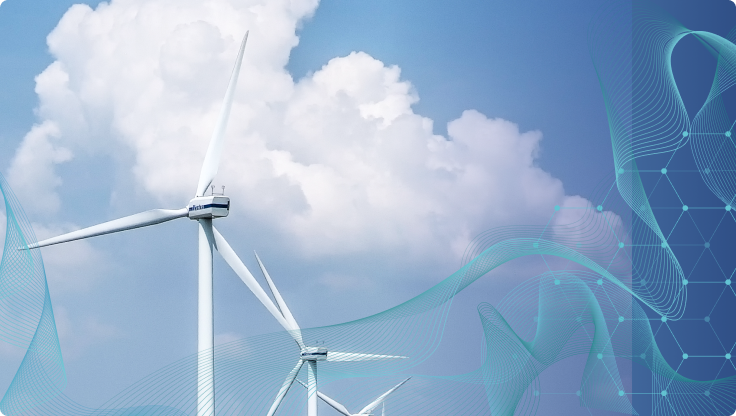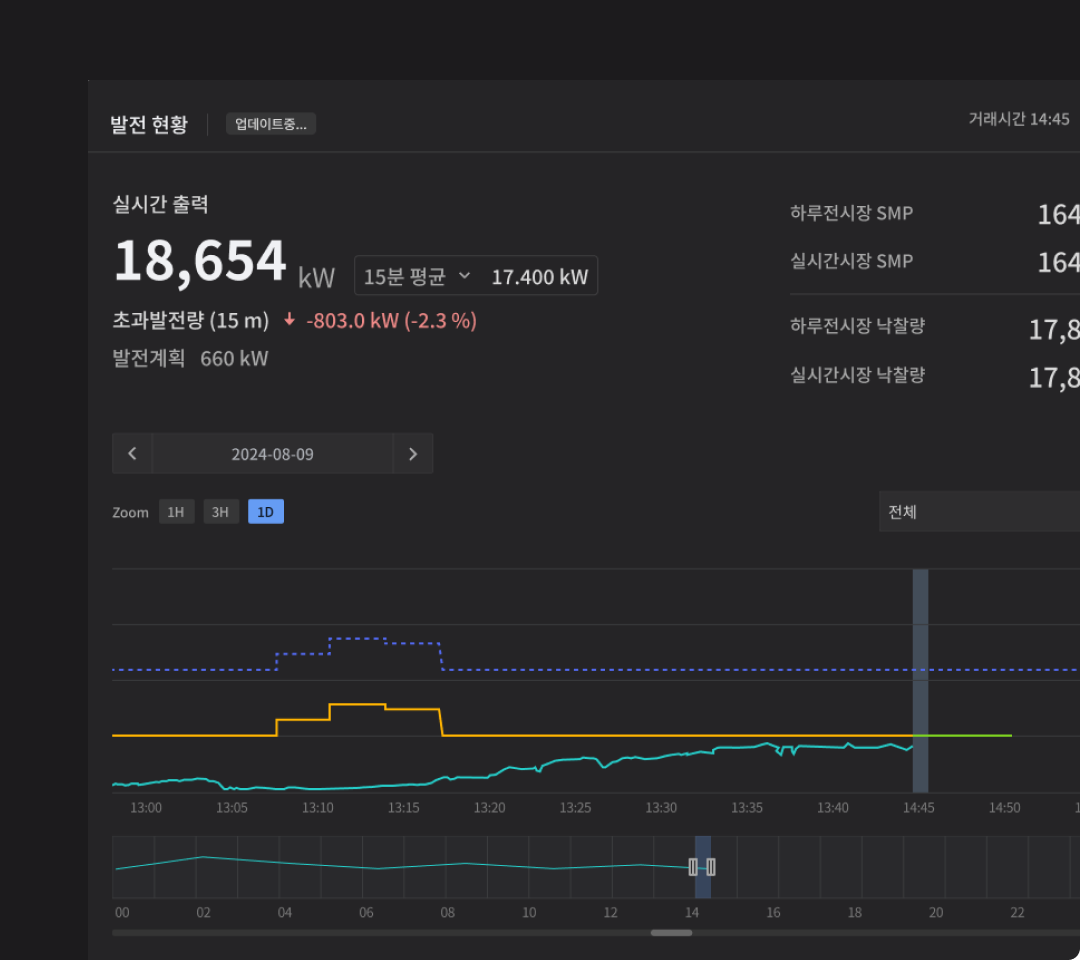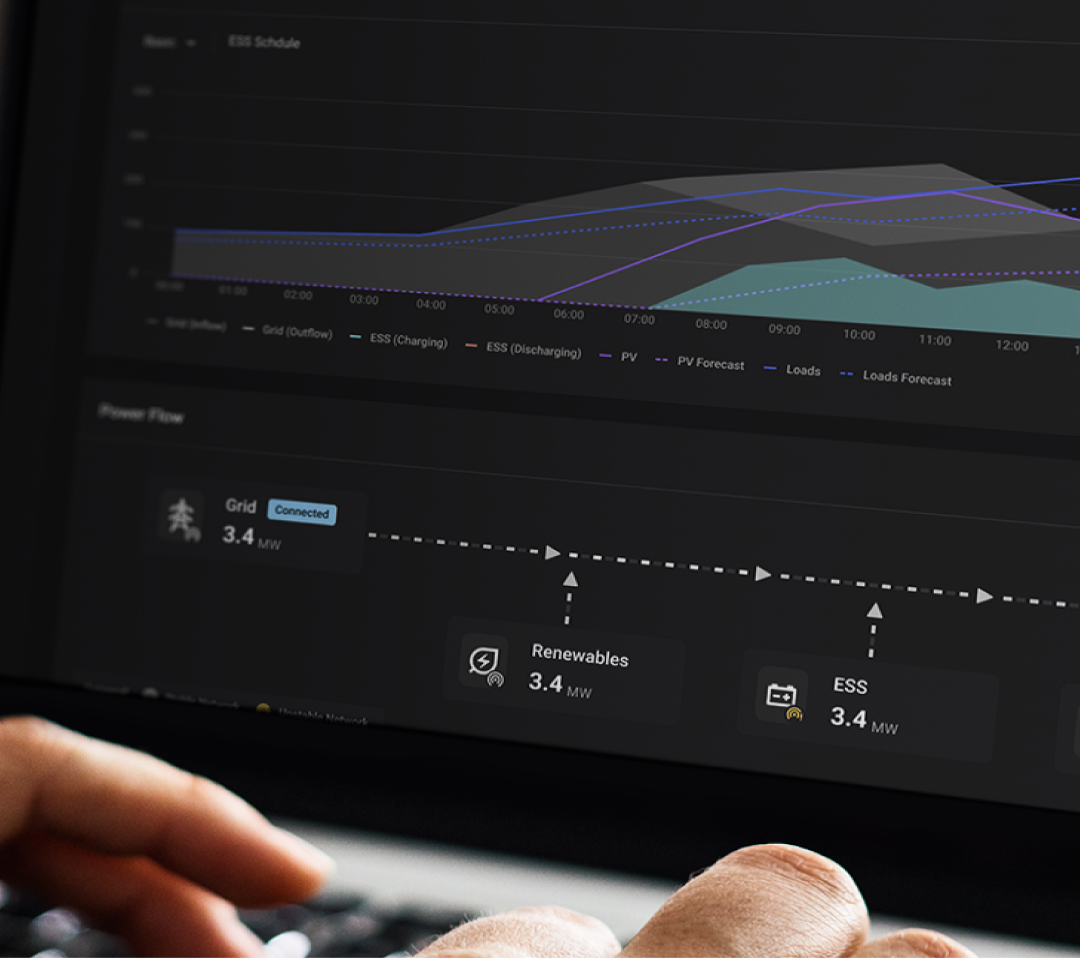Technical Overview
Challenges in Energy Data Analysis
Data generated in the energy industry varies greatly depending on location, time, and circumstances. Traditionally, feature engineering techniques have been applied to analyze this data, requiring site-specific data analysis efforts.
AI for Automated Data Analytics
We move beyond traditional feature engineering algorithms, applying artificial intelligence algorithms that can automatically infer and assess the interrelationships of data generated from different sites and equipment without human intervention.
AI for Demand/Renewables Forecasting and Optmization
Demand data analysis, power generation forecasting, and optimization are configured to automatically learn the characteristics of the equipment and power market, minimizing additional engineering costs as our business expands.
Features
Power Generation Forecasting Based on Proprietary Weather Forecasts
We generate high-resolution numerical weather forecasts on 1 km x 1 km grids every 10 minutes. The forecast data is processed in real-time and used as input for machine learning. The AI model also utilizes satellite images alongside numerical forecast to improve prediction accuracy.
We provide globally top-tier solar and wind power generation forecasts and support model improvements using additional weather forecast and measurement data.
Optimization Based on Reinforcement Learning
The optimization of ESS and power equipment is necessary according to power market and transmission/distribution operation rules. Reformulating models and finding solutions with every change in rules or target markets is impractical; instead, AI adapts to real-world conditions. We implement optimization that can adapt to rule changes through reinforcement learning.
For bidding, our AI learns optimal strategies via reinforcement learning, allowing flexible responses to changes in market rules and conditions.
NILM (Non-Intrusive Load Monitoring) / Disaggregation
Analyzes the power usage patterns of electrical equipment to estimate individual equipment consumption from the total power usage. It can infer individual equipment patterns from total power usage sampled at tens of hertz (Hz), and it also supports inference based on usage pattern models using 15-minute to 1-hour data intervals.
The NILM method at tens of Hz sampling rate has been commercialized for the first time globally, offering very high accuracy for seven types of household appliances. For 15-minute interval data, it provides four grouped inferences and is available to U.S. users through an mobile app.
NILM technology is applicable not only to households but also to large power equipment such as manufacturing facilities and building HVAC systems. It supports learning and modeling based on customer data.
Enhance the value of energy with ENCORED
Inquire about the Encored products that interest you.
Product Inquiry


